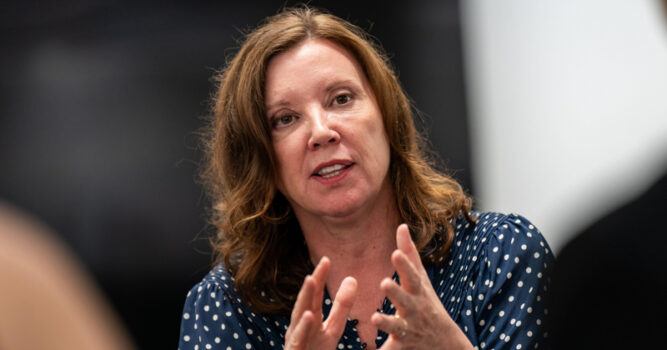The children’s commissioner has used her statutory powers to order every college in England to complete a survey about the wellbeing needs of young people and the services on offer.
Dame Rachel de Souza (pictured) said her survey, which will run until December 20, aims to “better understand the role schools play in children’s development”. It will help to shape her recommendations to the government and has been extended to colleges.
The survey, named “the children’s commissioner’s school survey” will ask whether they provide breakfast clubs, food banks or sexual health clinics, and who pays for such provision.
It will also ask college leaders to state, to the best of their knowledge, how many of their “pupils” vape or use e-cigarettes.
Leaders will also be asked if they have been unable to provide the required support to students with additional needs, and about mobile phone policies.
Colleges will be advised to only provide answers to questions that are directly relevant, FE Week understands, as most are schools-related.
‘No legal ramifications for non-response’
The children’s commissioner’s office clarified that colleges that did not participate would be chased up, but would not face legal ramifications.
De Souza insisted the survey was “not a ranking exercise or an accountability measure: it is the best way to build up a proper picture of what’s happening on the ground”.
“Responses will be analysed carefully and anonymised before publication next year. It isn’t intended to be burdensome, nor will it be a judgement on the quality or content of their response.”
Colleges will be asked if they employ staff such as counsellors, “school nurses”, therapists and educational psychologists, and whether they have one or multiple staff for roles such as designated safeguarding lead and mental health lead.
The survey will check if there is outdoor space, enrichment activities, a nursery, on-site alternative provision, breakfast provision, food banks and “student participation”, such as student councils. It also wants to know who pays for it.
‘Full scale of the challenge’
“If we are to create a system that is as ambitious for children as they are for themselves, we need to know the full scale of the challenges and opportunities school leaders, teachers and support staff face daily,” de Souza said.
Leaders will be asked if there are “barriers” to providing additional support for students, such as parent and carer engagement, funding availability, lack of local services, national policy or staff capacity.
And they will be asked if they can make adjustments for young people with SEND, such as access to counselling, adaptation of resources, mentoring, specific equipment and adapted timetables.
They will also be asked if there are any reasons why they are unable to meet the requirements of an education, health and care plan. Examples include funding not matching need, a lack of specialist staffing or accessible facilities.
Leaders will also have to say how many of their students vape or use e-cigarettes.









